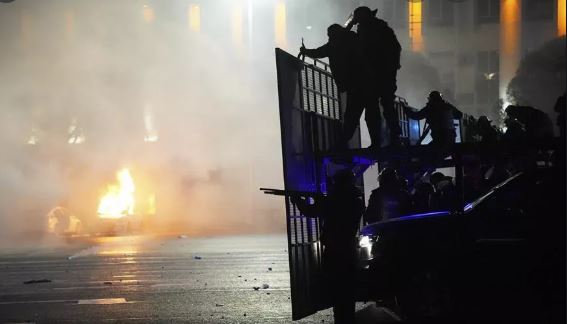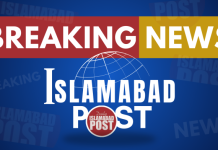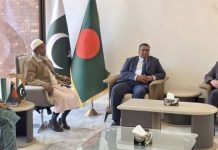MOSCOW, Kazakhstan’s President Kassym-Jomart Tokayev said on Friday that order had mostly been restored in the country after days of unprecedented unrest. the interior ministry said security forces had taken all the country’s regions “under increased protection” and that 26 “armed criminals” had been killed and 18 wounded in the unrest.
“Law enforcement forces are working hard. The constitutional order has been mainly restored in all regions,” Tokayev said in a statement after a meeting with top officials. “Local authorities are monitoring the situation. But terrorists are still using weapons, causing damage to civilian property,” he said. “Therefore the counter-terrorist operation will continue until the total destruction of the militants.”Tokayev confirmed that a peacekeeping force from the Russia-dominated Collective Security Treaty Organisation (CSTO) had arrived in Kazakhstan.
“This contingent arrived for a limited period of time to carry out mainly the functions of covering and ensuring the protection of strategic facilities,” the statement said.It said a number of orders had been issue to “further stabilise the situation in the country” but did not provide further details. The interior ministry said in a statement that 70 24-hour checkpoints had been set up across the country.
The police and armed forces, it said, were “protecting public order and objects of strategic importance, and clearing the streets.”Long seen as one the most stable of the ex-Soviet republics of Central Asia, energy-rich Kazakhstan is facing its biggest crisis in decades after days of protests over rising fuel prices escalated into widespread unrest.
Protesters stormed government buildings and fought running battles with police and the military, with officials saying 748 security officers were wounded and 18 killed. Tokayev declared a nationwide state of emergency and appealed for help from the CSTO, which includes five other ex-Soviet states, to combat what he called “terrorist groups” that had “received extensive training abroad”. The unrest raised fears of a destabilization of Kazakhstan, a major energy exporter and producer of uranium.












